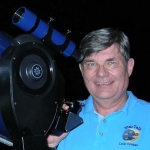BPA's in plastic humidifiers
-
Em B
BPA's in plastic humidifiers
Biphenol A (polycarbonate) (BPA) is a material recently banned from use in baby bottles. There is a concern with bottled water as well but I do not know the extent of the ban for these products. The leaching from plastic, especially when heated is the problem, as I understand it. Since I am one of those persons with some chemical sensitivities, I do not want to be breathing this substance for the rest of my life - 8 hours a night. My current CPAP machine has a humidifier which does appear to contain BPA's. Does anyone have information on this? Know of BPA-free cpap machines?
- SleepyInDC
- Posts: 67
- Joined: Tue Mar 31, 2009 9:01 pm
Re: BPA's in plastic humidifiers
Another good question: Does anyone know how many BPAs would actually be transmitted through the vapor? (if any).Em B wrote:Biphenol A (polycarbonate) (BPA) is a material recently banned from use in baby bottles. There is a concern with bottled water as well but I do not know the extent of the ban for these products. The leaching from plastic, especially when heated is the problem, as I understand it. Since I am one of those persons with some chemical sensitivities, I do not want to be breathing this substance for the rest of my life - 8 hours a night. My current CPAP machine has a humidifier which does appear to contain BPA's. Does anyone have information on this? Know of BPA-free cpap machines?
-
BeanMeScot
- Posts: 588
- Joined: Fri Aug 01, 2008 11:05 am
Re: BPA's in plastic humidifiers
The part that is being heated, at least on mine, is a metal plate. The rest of it doesn't get hot. I wouldn't think it would be a problem.
- SleepyInDC
- Posts: 67
- Joined: Tue Mar 31, 2009 9:01 pm
Re: BPA's in plastic humidifiers
The problem isn't just the heat. BPAs are absorbed by any water that is in contact with them (hot or not). My question is how they would pass through humidity. My guess would be fairly well. Going to ask a chem professor who is a hose head also today. But this is why they aren't making water bottles with it any more. Water bottles (which aren't) heated can actually transmit quite a bit of BPA which isn't good for you. (BPA is chemically similar to Estrogen)BeanMeScot wrote:The part that is being heated, at least on mine, is a metal plate. The rest of it doesn't get hot. I wouldn't think it would be a problem.
Re: BPA's in plastic humidifiers
For the worry warts......
Go up to the Search line and type in "BPA" and start reading the 6 pages of threads/posts where it's been discussed.
Den
Go up to the Search line and type in "BPA" and start reading the 6 pages of threads/posts where it's been discussed.
Den
(5) REMstar Autos w/C-Flex & (6) REMstar Pro 2 CPAPs w/C-Flex - Pressure Setting = 14 cm.
"Passover" Humidification - ResMed Ultra Mirage FF - Encore Pro w/Card Reader & MyEncore software - Chiroflow pillow
User since 05/14/05
"Passover" Humidification - ResMed Ultra Mirage FF - Encore Pro w/Card Reader & MyEncore software - Chiroflow pillow
User since 05/14/05
Re: BPA's in plastic humidifiers
Pure conjecture here. but I thought that BPA was used to make plastics more flexible.
The humidifier is made of rigid plastic (acrylic? polycarbonate?), so I don't think that BPA is a big deal.
The seals in the H4i are silicone, so that is not an issue.
The humidifier is made of rigid plastic (acrylic? polycarbonate?), so I don't think that BPA is a big deal.
The seals in the H4i are silicone, so that is not an issue.
_________________
| Machine: DreamStation BiPAP® Auto Machine |
| Mask: DreamWear Nasal CPAP Mask with Headgear |
jeff
Re: BPA's in plastic humidifiers
That may be true, but there are several big differences between bottled water and your humidifier.SleepyInDC wrote: Water bottles (which aren't) heated can actually transmit quite a bit of BPA which isn't good for you.
Factors:
Bottled water stays in contact with the plastic for considerable time (months?). The water in your humidifier is in contact only a few hours at most.
Will BPA make the leap into water vapor, or remain in the liquid like most other contaminants (the reason they distill water in the first place)?
BPA from bottled water enters thru your digestive system, not your respiratory. Is BPA harmful to your lungs, or only if ingested?
Frankly, I wouldn't "lose sleep" over it. But let us know what you find out.
The OSA patient died quietly in his sleep.
Unlike his passengers who died screaming as the car went over the cliff...
Unlike his passengers who died screaming as the car went over the cliff...
Well, unless your BABY is on CPAP...
Statement (letter) from Respironics:
April 25th 2008
To Whom It May Concern
This document represents Respironics' position regarding the use of Bisphenol A in Respironics Sleep and Home Respiratory Devices. On April 18, 2008, the Government of Canada, banned the use of Bisphenol A (BPA) in polycarbonate baby bottles, claiming that the exposure to BPA on newborns and infants up to 18 months of age, could potentially present a health risk to this patient group when the polycarbonate baby bottles are exposed to high temperatures.
At this time, we are able to provide the following information to our customer: NONE of our Sleep and Home Respiratory products which are either breathable or skin contacting are intended for use with newborns or infants under 18 months of age. Therefore, Respironics is in compliance with Health Canada's postion for exposure for the identified at risk patient population.
Although Health Canada's restriction for BPA does not include products used for ages above 18 months at this time, Respironics is evaluating its product portfolio and will take the appropriate actions to determine and mitigate any potential risk from use of its products or potential exposure to BPA. It should be noted that NOT all polycarbonate resins contain BPA. In response to the direction provided by Health Canada's device licensing division, Respironics will be evaluating all of our Class II and III medical devices to determine if the resins used in the manufacturer of its products contain BPA.
Further, none of our products or accessories using polycarbonate are labeled for exposure.
In closing it is Respironics position that our products do not pose any increased risk of exposure to BPA for our users and thus our products remain safe for use.
If you have any further question regarding this topic, please feel free to contact me at zita.yurko@respironics.com or at 724-387-4120.
Regards,
Zita Yurko
Director, Regulatory Affairs
Sleep and Home Respiratory Division
Respironics, Inc.
April 25th 2008
To Whom It May Concern
This document represents Respironics' position regarding the use of Bisphenol A in Respironics Sleep and Home Respiratory Devices. On April 18, 2008, the Government of Canada, banned the use of Bisphenol A (BPA) in polycarbonate baby bottles, claiming that the exposure to BPA on newborns and infants up to 18 months of age, could potentially present a health risk to this patient group when the polycarbonate baby bottles are exposed to high temperatures.
At this time, we are able to provide the following information to our customer: NONE of our Sleep and Home Respiratory products which are either breathable or skin contacting are intended for use with newborns or infants under 18 months of age. Therefore, Respironics is in compliance with Health Canada's postion for exposure for the identified at risk patient population.
Although Health Canada's restriction for BPA does not include products used for ages above 18 months at this time, Respironics is evaluating its product portfolio and will take the appropriate actions to determine and mitigate any potential risk from use of its products or potential exposure to BPA. It should be noted that NOT all polycarbonate resins contain BPA. In response to the direction provided by Health Canada's device licensing division, Respironics will be evaluating all of our Class II and III medical devices to determine if the resins used in the manufacturer of its products contain BPA.
Further, none of our products or accessories using polycarbonate are labeled for exposure.
In closing it is Respironics position that our products do not pose any increased risk of exposure to BPA for our users and thus our products remain safe for use.
If you have any further question regarding this topic, please feel free to contact me at zita.yurko@respironics.com or at 724-387-4120.
Regards,
Zita Yurko
Director, Regulatory Affairs
Sleep and Home Respiratory Division
Respironics, Inc.
The OSA patient died quietly in his sleep.
Unlike his passengers who died screaming as the car went over the cliff...
Unlike his passengers who died screaming as the car went over the cliff...
-
TheOneBlackMage
- Posts: 30
- Joined: Tue May 26, 2009 3:29 pm
- Location: Ontario, Canada
Re: BPA's in plastic humidifiers
Resmed Statement:
http://www.resmed.com/us/documents/bisp ... _18_08.pdf
http://www.resmed.com/us/documents/bisp ... _18_08.pdf
The article says this, and then goes on to talk about meeting FDA regulations for "biocompatibility" to every material a patient is exposed to.Many of ResMed's products include polycarbonates in which bisphenol A is a raw material.
Re: BPA's in plastic humidifiers
I think that's because the FDA doesn't consider BPA to be a health hazard for people over 18 mos.
The OSA patient died quietly in his sleep.
Unlike his passengers who died screaming as the car went over the cliff...
Unlike his passengers who died screaming as the car went over the cliff...
Re: BPA's in plastic humidifiers
Just the opposite: BPA is used to harden plastics. While squishy plastic may have some BPA, without asking the mfg and trusting their answer, you just don't know. I carry Deerpark 700ml sport-top bottles everywhere and use their distilled water. I emailed them and asked about BPA; they said BPA was not used in them. Also emailed the mfg of Ziploc and Glad baggies and steamer bags; same answer, no BPA used in their mfg. Some Rubbermaid products are BPA free (twist lids products are BPA free).jdm2857 wrote:...BPA was used to make plastics more flexible...
ResMed S9 range 9.8-17, RespCare Hybrid FFM
Never, never, never, never say never.
Never, never, never, never say never.















